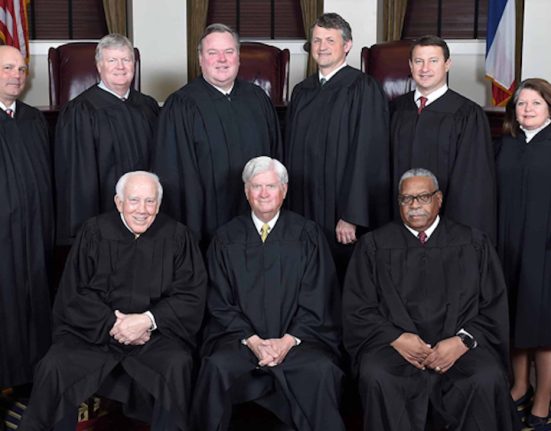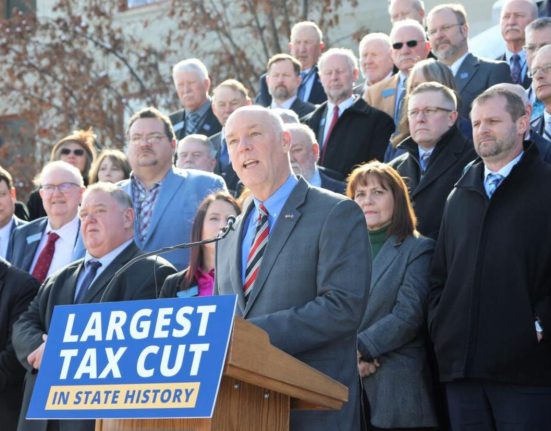When faced with pleas to extend Connecticut’s free school meal program, leaders of the Appropriations Committee encouraged testifiers at a public hearing Tuesday to go back to their districts and tap into federal COVID relief funds.
The committee chairs expressed resistance to H.B. 5510, a bill that would renew the $11.2 million program that has provided free breakfast for all students and free lunch to families who qualify for free or reduced-price meals through the 2023-2024 school year.
Universal free meal proponents came out to support the bill Tuesday in an emotional public hearing that included students, educators, lawmakers, social workers and food service directors.
Highlighting the impact of free meals on improving educational outcomes, engagement, mental health, nutrition, school climate and other benefits, the supporters urged committee members to pass the bill and keep kids fed.
But, with millions of expiring Elementary and Secondary School Emergency Relief Fund dollars on the table, some lawmakers appeared skeptical of increasing state spending to sustain the program.
“We want to make sure that when you go back, that you’re saying to your school system, ‘If you have not spent this money by Sept. 1, or allocated the money by Sept. 1, it will be returned to the federal government. If you have no place for this money to go, it should go into the school meal program as a way to foster funding for this,’” Committee Chair Sen. Cathy Osten said.
Nearly $337 million in ESSER funds remain unspent across Connecticut’s public and charter schools, according to data collected by the Connecticut State Department of Education. ESSER balances in each district range from $0 to $57.7 million, with a median of approximately $192,000.
As boards of education prepare their budgets for next year, Rep. Moira Rader said that districts are desperately trying to avoid staff layoffs and maintain programs for their students — not discussing how to use ESSER to extend the state’s meal program.
“A lot of town budgets are going to fail this year,” said Rader, who testified in favor of HB 5510 and is a member of the Guilford Board of Education. “The issue around ESSER is that it’s a great gift right now, but it’s going to go away. And so if you have something that you want to sustain beyond next year, you really don’t want to budget it using ESSER funding.”
Committee leaders argued that cafeteria funding is an appropriate ESSER expense and that if districts want to prioritize free meals, they should do it with their remaining funds.
“They need to expend their money before the state comes in,” Committee Chair Rep. Toni Walker said in an interview after the hearing.
Walker said that as state revenues grow, “maybe we can figure out how to do this (school meals funding) better.” In the meantime, Walker said districts should contribute ESSER funds to maintain meal programs before the grants expire.
“When we don’t utilize all our dollars, we leave money on the table,” Walker said. “Everybody’s saying how important this is, so we feel that the districts should put up some of that money to help pay for this.”
Committee leaders appeared more open to the second half of the proposal, which would ensure full funding for free meal programs in districts that participate in the federal Community Eligibility Provision program.
“If any state funding goes, that’s where the state funding should go,” Walker said before cautioning against another round of blanket funding to all districts.
“We need to make sure that we’re using the funds for towns and cities that need the money,” Walker said. “We shouldn’t be covering everybody if their ability is there to fund it themselves.”
School districts become eligible to participate in CEP if at least 25% of students automatically qualify for the free meals. CEP schools guarantee free breakfast and lunch to all students, however the amount of funding a district receives to pay for the program varies based on the U.S. Department of Agriculture’s reimbursement formula.
According to testimony submitted by the Connecticut Commission on Women, Children, Seniors, Equity and Opportunity, at least 62.5% of a district’s student population must automatically qualify for free meals for that district to receive full federal funding.
CWSEO said that schools that do not meet the full reimbursement threshold are often forced to cover the difference using their own budgets. CWSEO said others forgo CEP participation entirely, leaving students without free meals, and the state without federal dollars.
“There were 39 eligible schools in Connecticut that did not participate in CEP during the 2022-2023 school year,” CWSEO said. “Using state funds to fill gaps in federal reimbursement rates could allow more districts to implement CEP without fear of budget shortfalls.”
During the hearing, Osten said the committee recognizes and wants to address the funding deficits in the CEP structure.
When lawmakers might take action on the issue was less clear.
“We’re not saying that we’re going to have the resources to do this this year, but we have looked at the policy of it,” Osten said.
The committee has until Thursday, April 4 to advance the bill to the House.
At a press conference supporting H.B. 5510 before the public hearing, Rep. Gary Turco said that he would vote to “amend the fiscal guardrails to feed Connecticut’s children.”
He urged his colleagues to not “go backwards” and let the free meal program expire. “If our children go to school hungry and don’t get a nutritious meal, they can’t learn,” Turco said.
“We’re wasting education dollars, we’re wasting all the resources we provide to teachers because children are distracted, or just not feeling well or don’t go to school.”
Turco said that the free meal policy “has to come first.”
“Nothing is more important than feeding our children, and if we can’t do that, at least now, what are we doing here?” Turco.







